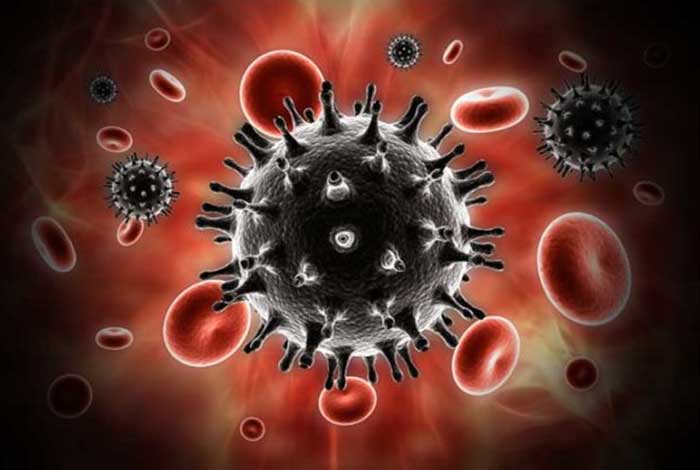
Immunotherapy – A Novel Approach to Treat Cancer and Other Health Conditions

Immunotherapy is a treatment in which, specific parts of a patient’s immune system is utilized to effectively fight against allergies and several deadly diseases. This can be achieved in two ways – by boosting or suppressing the immune system’s response and by providing synthetic immune system proteins to combat the disease.
In the medical sphere, immunotherapy is nothing short of a miracle that can treat cancer and various other health conditions by leveraging the body’s immune system. It is popularly known for treating various types of cancer, but can also be employed to treat age-related conditions, allergies and autoimmune diseases.
Immunotherapy include various kinds of treatments with each having different goals. Some treatments are focused at generally improving the body’s immune system while others train the immune system to specifically combat certain types of cancer. For a few types of cancer, standalone immunotherapy is required, whereas for some cancers, it needs to be given in combination with other available treatments.
Read on to know how immunotherapy provides such revolutionary health benefits.
Cancer and Our Immune System
Our immune system indeed does a great job by protecting us from various diseases and illnesses. It tactfully detects and removes the cells that are not functioning properly; thus, keeping us healthy. In most cases, our immune system successfully prevents cancer development. If somehow cancer develops, it weakens our immune system or produces signals that prevent the immune system from attacking the cancer cells.
Immunotherapy aims at boosting or eliciting a response from the immune system such that it detects and inhibits the cancer cells.
Types of Immunotherapy

To be precise, it is a bit difficult to categorize cancer immunotherapies as they usually tend to overlap. The different types of immunotherapies often combine various aspects of the immune system. Cancer immunotherapy is also known as biological therapy.
Broadly, these immunotherapies can be classified as active and passive. The active immunotherapy involves optimizing immune cells to attack the cancerous cells whereas, passive immunotherapy is all about enhancing the pre-existing anti-tumor immune responses. There are also hybrid immunotherapies that include combination of both active and passive approaches.
Cancer cells have specific molecules, known as tumor-associated antigens (TAAs). These antigens are easily detected by the immune system. What immunotherapy should be employed to treat cancer largely depends on the type of cancer. Let’s learn about several terminologies related to immunotherapy.
Monoclonal Antibodies (mAbs)
Monoclonal literally means “identical” clones. As the name indicates, monoclonal antibodies are lab-made, identical antibodies of a specific kind. These antibodies are all clones of the same parent cell and hence, these bind on the same part of an antigen on the cancer cell.
These can possibly elicit an immune response; thereby, making it easier to detect and inhibit cancer cells. This process is known as antibody-dependent, cell-mediated cytotoxicity (ADCC).
Checkpoint Inhibitor Therapy
Certain types of cancer can prevent the immune system from attacking the cancer cells by emitting a signal. A class of monoclonal antibodies can effectively prevent such cancer cells from inhibiting the immune system to attack them.
There have been numerous researches going on to find new and effective checkpoint inhibitors and many of them have already been approved for treating certain cancers. Ipilimumab is one such checkpoint inhibitor, which targets the CTLA-4 protein, was approved in 2011 for treating melanoma.
Cytokine Therapy
https://zovon.com/wp-admin/edit.php?post_status=future&post_type=postCytokines are a large group of proteins that play a key role in cell signaling. Interleukin and Interferon are two naturally available cytokines in our body. Man-made versions of these cytokines are also approved for the treatment of various kinds of cancer.
As a matter of fact, several cytokines are also produced by tumor cells to reduce the immune response in our body, which allows tumor cells to spread.
Read-on to know what side-effects you can expect when undergoing an immunotherapy for cancer or any other health condition.
Side-Effects of Immunotherapy
Different types of immunotherapies can cause different side effects. The side effects depend on your overall health, type of cancer and the location of the cancer. Based on the side-effects you are experiencing, your doctor might prescribe you some medications or if required, may discontinue the immunotherapy.
Its most common side effects include skin dryness, blisters, skin redness, fever, fatigue, chills, nausea, weakness, dizziness, cough, weight gain, body aches, headaches, shortness of breath and edema.
It is therefore advised to consult your health care provider about its possible side effects as well as what to do in case you experience any of such side effects.
Conclusion
All these cancer immunotherapies have opened new doors for finding better and novel cancer treatments. Considering millions of people, who suffer from cancer worldwide each year, these therapies have instilled hope in humans as well as the medical fraternity that it is possible to fight off cancer and save numerous lives.
With so many researches going on in this direction, the oncologists might soon be able to treat most of the cancers with immunotherapy alone. However, it is equally important to talk to your doctor about any side effect that you may experience before you begin the treatment.





